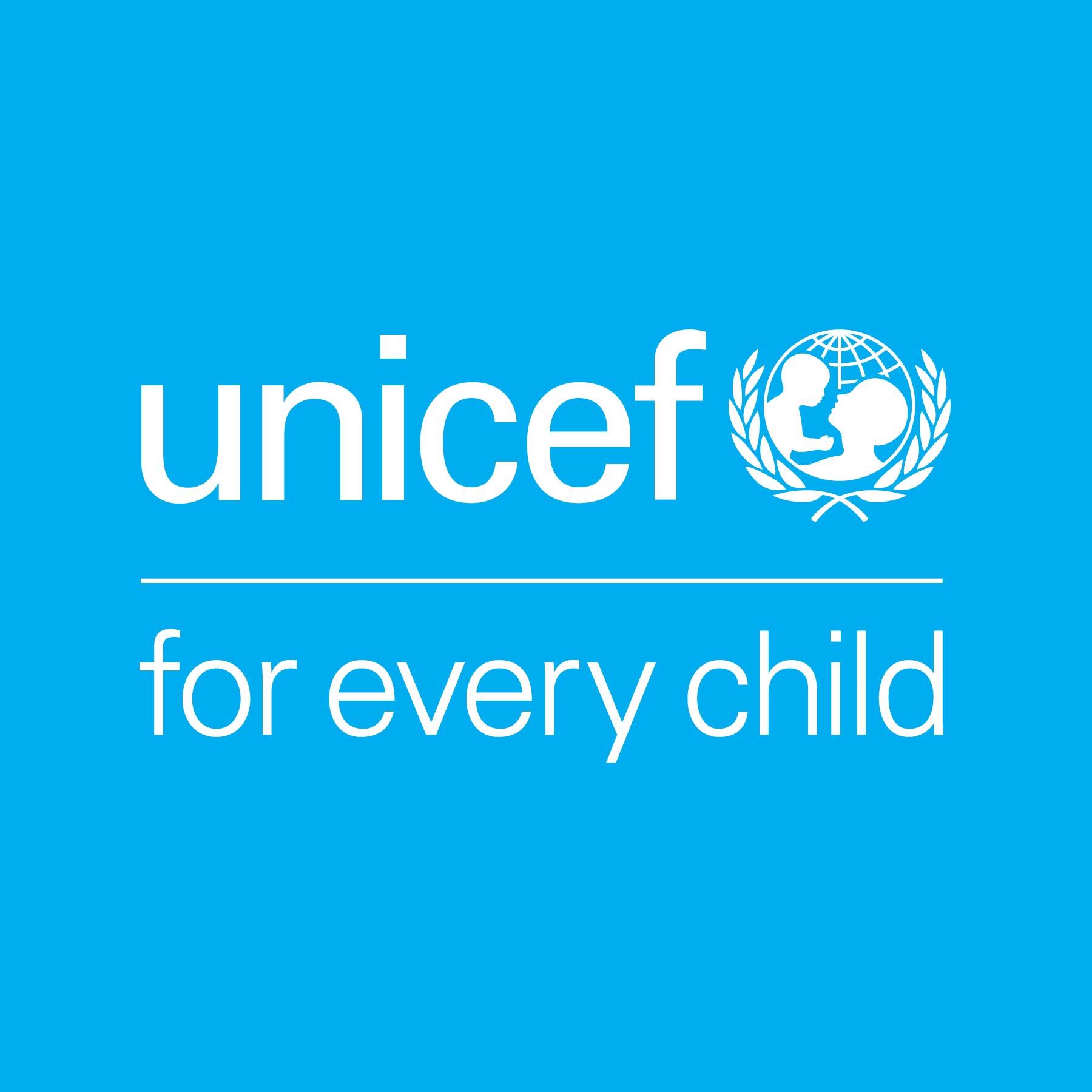
Every child has the right to an education.
Despite this, the global environment is continually affected by COVID-19 from 2020, and the school closure due to the epidemic has disrupted the education of a whole generation of children. If present trends continue, in 2030, more than half of the world’s 2 billion youngsters will not have learned fundamental high school knowledge.
With no appropriate education and assistance, they are at risk of facing hardships and losing hope for their future.
The World is Facing a Learning Crisis
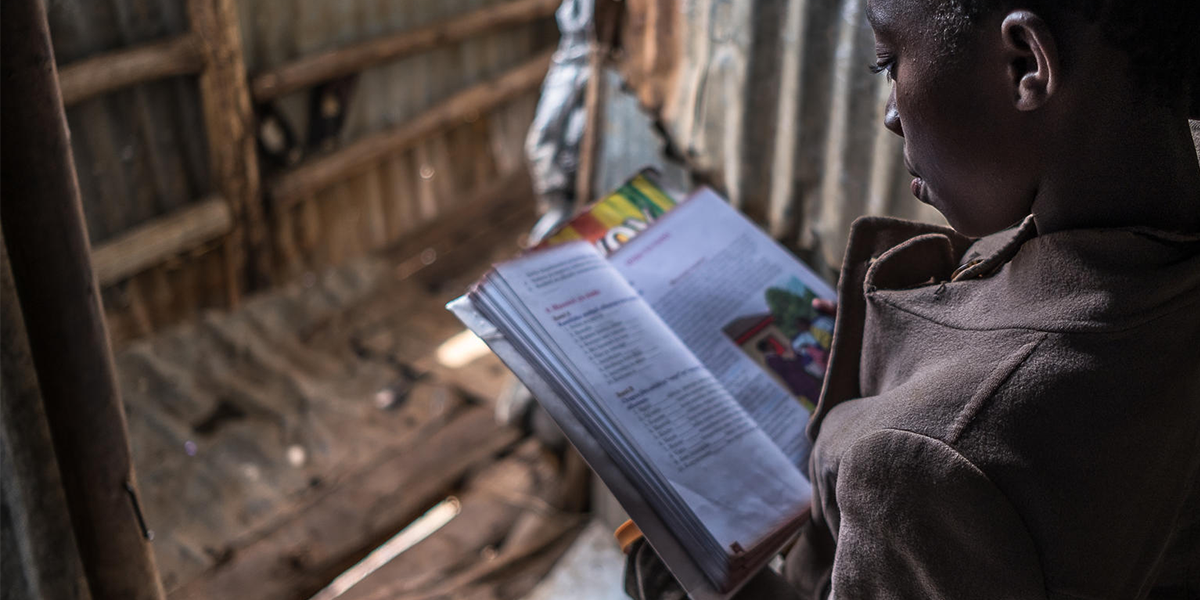
- Even prior the pandemic, at least 175 million pre-primary school-aged children and 262 million primary and secondary school-age children – one in five – does not have access to education
- Half of the children in low- and middle-income countries, who lives in Learning Poverty are unable to read and write a simple text by age 10
- 31 per cent of school children worldwide who are mainly from rural areas and/or poor households cannot be reached by remote learning programs
- 40 per cent of countries did not provide remote learning opportunities at the pre-primary level of education
Being out of school for that long means that children not only stop learning, they also tend to forget a lot of what they have learned. These learning crisis will likely lead to an enormous amount of students dropping out of school, which could affect their future earnings.
In 2021, UNICEF have already helped 60 million out-of-school children gain access to early learning, primary or secondary education, and provided individual education or early learning materials to 93 million children. All these works has improved 79 per cent of countries’ learning outcomes. However, with the ongoing learning crisis and challenges, we urgently need to find solutions to reimagine education.
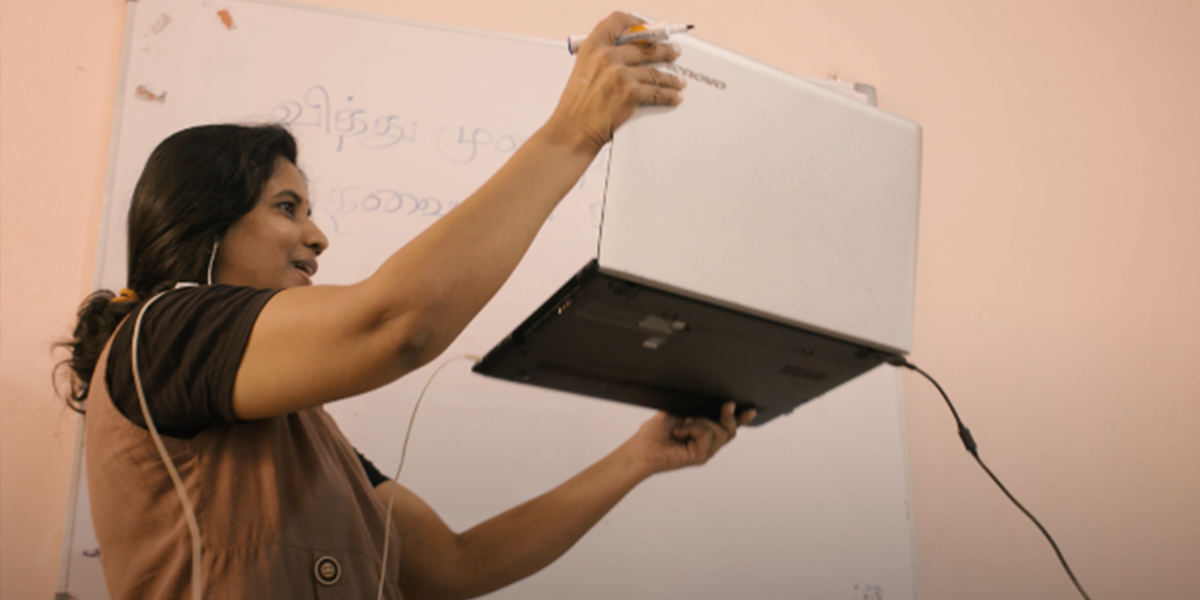
A day in the life of a teacher in Sri Lanka
A primary school teacher in Sri Lanka, Sivajini Jeyaraj, witnessed the impact of COVID-19 pandemic on education. In her community, most of the parents are daily wage laborers. They are badly affected economically and this situation severely affected the education of their children.
“I realized that the school closures created barriers to the teaching process. It’s very challenging to teach my students through digital devices. Online learning is not accessible to all of my students because only four of them have smartphones.”
To support student living in remote areas, Sivajini heavily relies on the support from volunteers to facilitate remote teaching group, and to distribute paper assignments through motorcycles. While Sivajini had done her best to give the same quality education to each of her students, we believe by reimaging education, the connection between every child, young person & teacher can be strengthened through digital learning.
UNICEF’s “Reimagine Education” plan
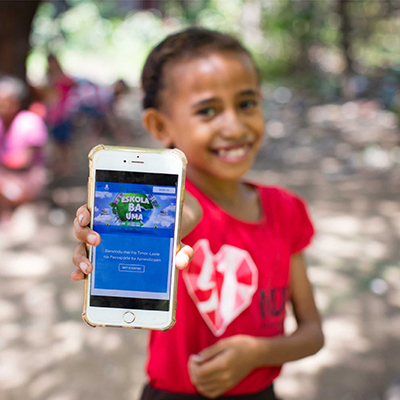
World-class digital learning solutions
To Reimagine Education using digital solutions, UNICEF and partner will scale-up digital learning solution by providing sufficient training to teachers and add in emerging technologies such as AI, with constant evaluation and upgrades to the platform.
UNICEF collaborates with Microsoft on the Learning Passport, which is a flexible learning platform, with both online and offline models. It is very adjustable and adaptable for teachers and students, and is tailored to the language and cultural background of each area. The Learning Passport is currently being used in 11 countries, and will soon expand to 20 more.
Connectivity
To Reimagine Education by connecting every child, UNICEF will join Giga, a global initiative to connect every school to the internet. This enables schools to work closely with partners and governments, providing sustainable strategy for mapping connectivity demand and advising on the best possible technical solutions for schools’ connectivity in countries with reliable digital infrastructure.
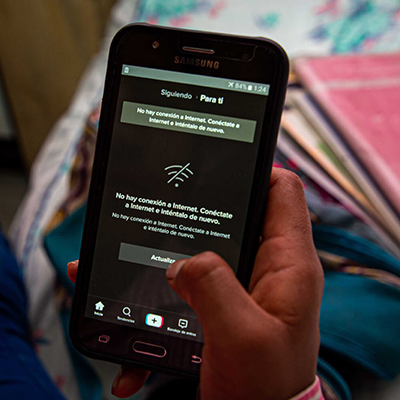
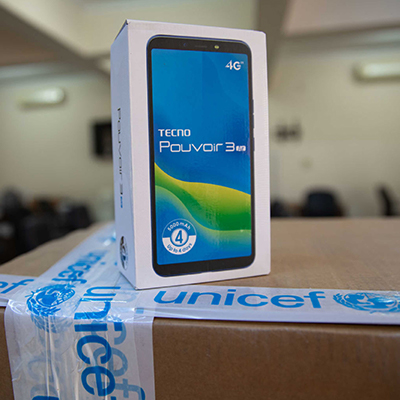
Devices
To Reimagine Education through enabling access to devices, UNICEF is sourcing for low-cost devices and solutions by exploring partnership opportunities at local and global levels, for every child and young person to be able to access digital learning.
Affordable content and data
To Reimagine Education by making digital learning content more affordable, UNICEF will partner with mobile network operation, providing zero rate content for learner, parents and teachers.
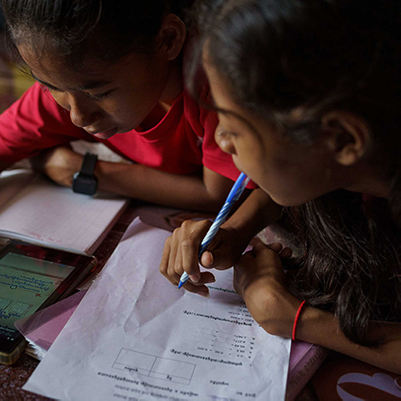
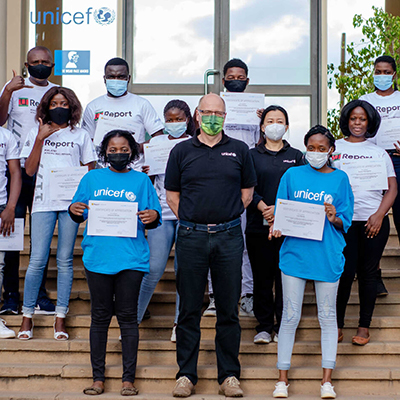
Young People’s Engagement
To Reimagine Education through the eyes of and with young people, UNICEF will invite young people to be part of the decision-making processes, to co-create the design of relevant and contextualized digital solutions, engage the campaign and create feedback mechanisms, hence transforming them into active change maker.
How can we help?
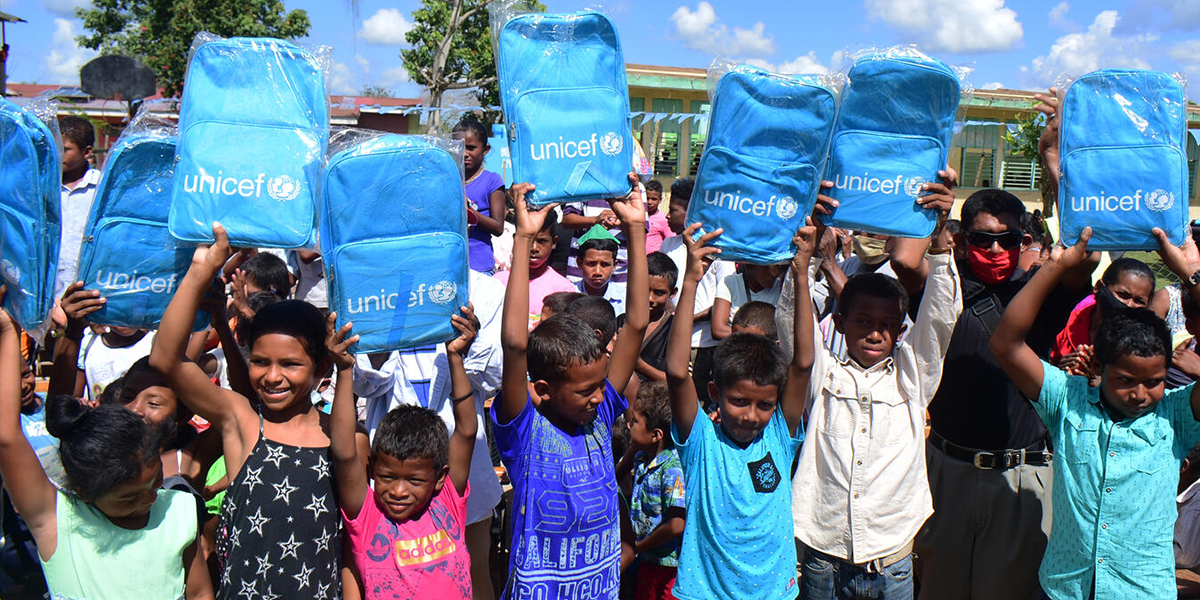
To end the learning crisis by enabling every child and young person – 3.5 billion by 2030 — UNICEF is requesting a total of US$474.5 billion to implement education enhancement. This includes digital learning, connecting every school to the internet, purchase of devices, and youth-led campaigns. The cost could be translated to US$26 per year for each learner. We need your greatest support to unlock opportunities together, provide rights and education for every child and young person.